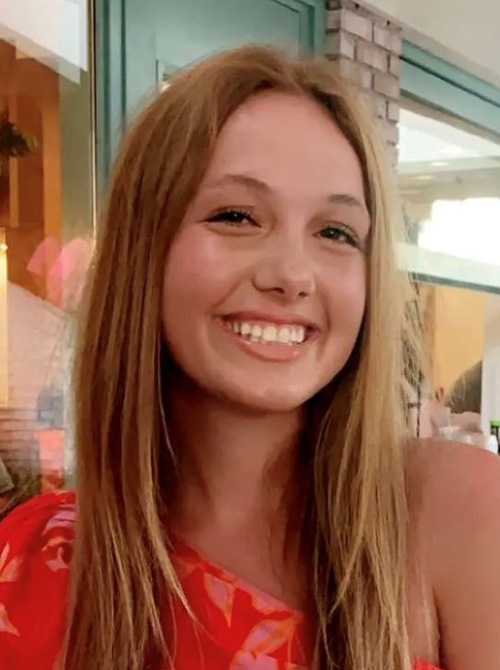By CATE McCRORY

From left: Brooklyn Robinson, MCL intern and columnist Cate McCrory, Madeline Duncan and Abby White.
Growing up, friends were just people to play with on the playground. As I got older, those people became friends to just sit with at lunch. I was still stuck on the idea that friends were just people to surround myself with.
I thought that was all there was to it until recently. I saw what an in-depth relationship with Jesus looked like, and I slowly began to understand the possibility of depth in earthly relationships; my perspective on friendships was changed.
Before understanding what a true relationship looked like, I was focused on the here and now, and currently I’m trying to focus on the present and future, because seeing that my relationship with Jesus is future-minded and rooted in love and grace, I long for my relationships with others to be that way too.
Before I could be in that type of friendship, I had to be humbled and come to terms with myself and what kind of friend I was like.
Fortunately, throughout the Bible, there are great examples of how to be a friend. The most famous example is Jesus and His forgiveness, unconditional love and grace. He was able to forgive broken people. This led Him to ultimately die on a cross and defeat death to save us from the consequences of living in a sinful world. That’s another great trait of what kind of friend Jesus was: He would do anything for His people (and that’s us!).
After hearing how Christ was a friend to others, I had to reassess many of my relationships by asking myself: What is this relationship rooted in? And how can I be a better friend?
Now, two years after initially asking myself those two questions, I have realized Christ-centered friendships are the ones I cherish most. In these relationships, there is a whole new level of transparency and vulnerability. Author Suzie Eller beautifully describes this level of vulnerability:
“We risk being known as imperfect. We risk saying something we wish we hadn’t, we risk showing others that we don’t have it all together. But by taking these risks we discover that everyone else on the planet isn’t perfect either. We discover that we can be ourselves — our imperfect, work-in-progress selves, and accept others in the process.”
Although it is so hard to be transparent, it can help you learn to accept others as you want to be accepted. This can only be done through unconditionally loving people with the help of Jesus, because He calls us to be like Him: “A new commandment I give to you, that you love one another: just as I have loved you, you also are to love one another.” (John 13:34)
When a friend opens up and becomes transparent, you learn about your friend in such a different way. Knowing more about “your” people can help you become a better friend and show Christlike love, grace and forgiveness. Colossians 3:13 says, “Forgive one another if any of you has a grievance against someone. Forgive as Christ forgave you.”
People are not perfect, and forgiveness is something all people are called to do. This can help “build your village,” because life gets hard, and you need friends who will love you through it all.
With this type of transparency and vulnerability, there is also the feeling of knowing you are not alone. The devil often tries to tell us that we are all alone, but we are to equip ourselves with the help of other people. That’s also why God gave Eve to Adam. With the help of God and the community He has given us, we can begin to understand what it truly means to have a friend in Christ.

Cate is a senior at Madison-Ridgeland Academy, a member of the dance team, and a member of Young Life and Fellowship of Christian Athletes. She is also a member of Highland Colony Baptist Church in Ridgeland. Cate enjoys being an intern for MCL because she feels like the Lord has placed writing on her heart. You can read more of her work on her blog, catemccrory.wordpress.com, or in her Instagram bio, @catemccrory.

